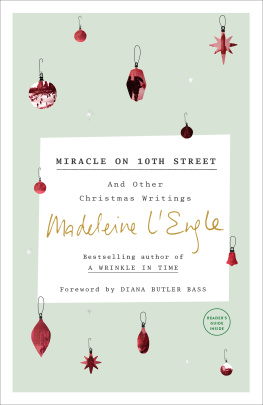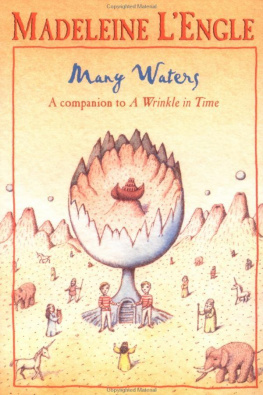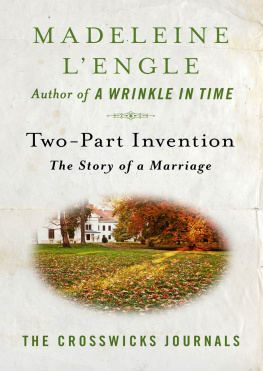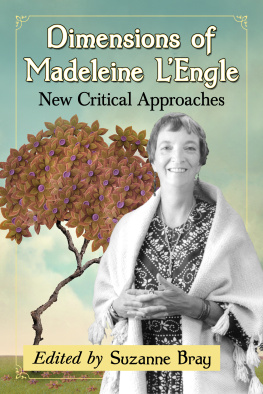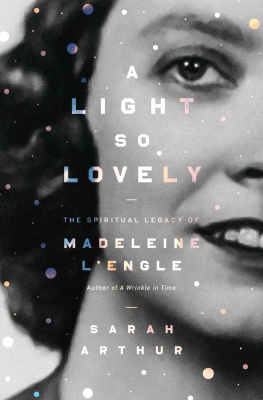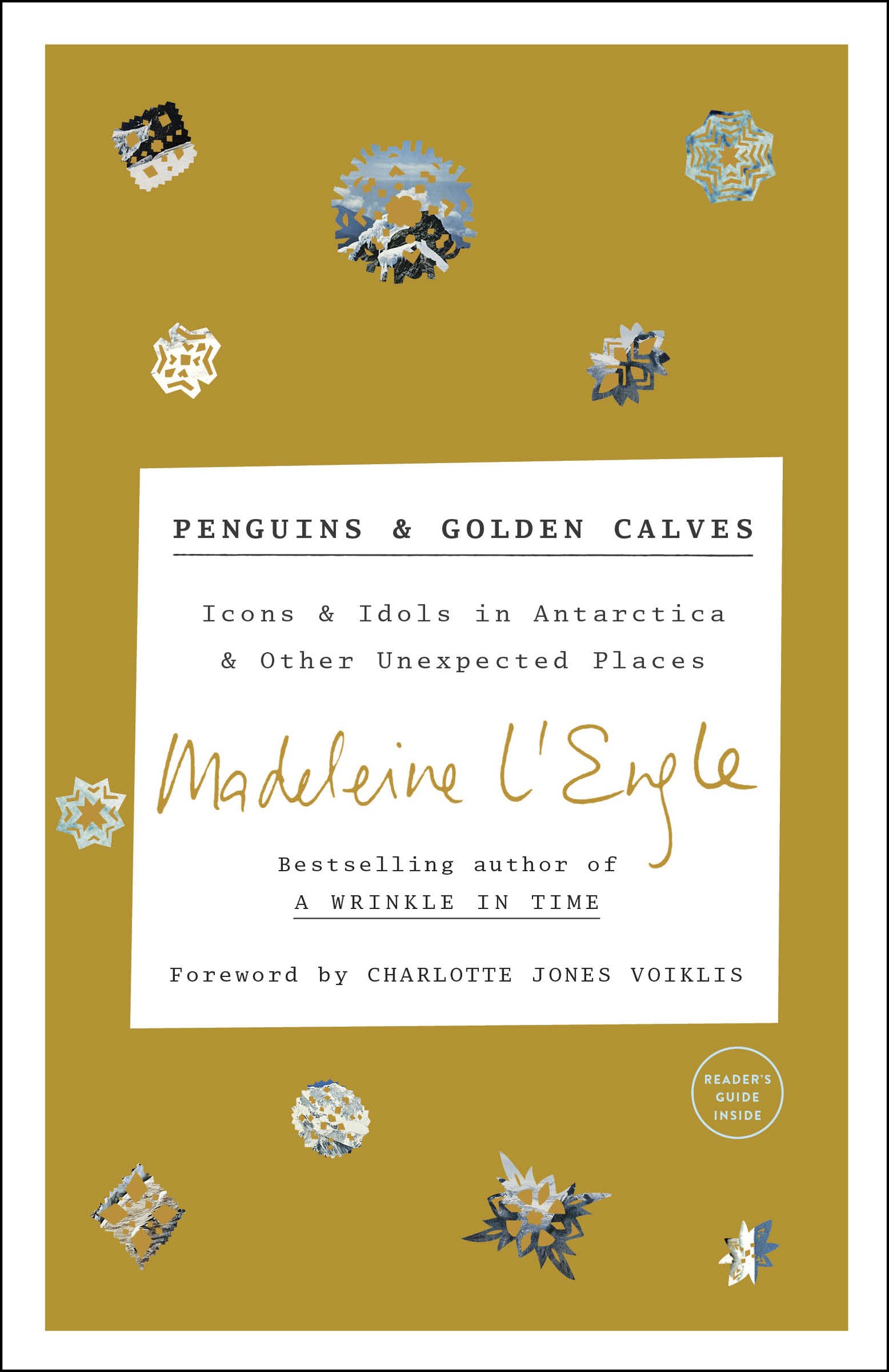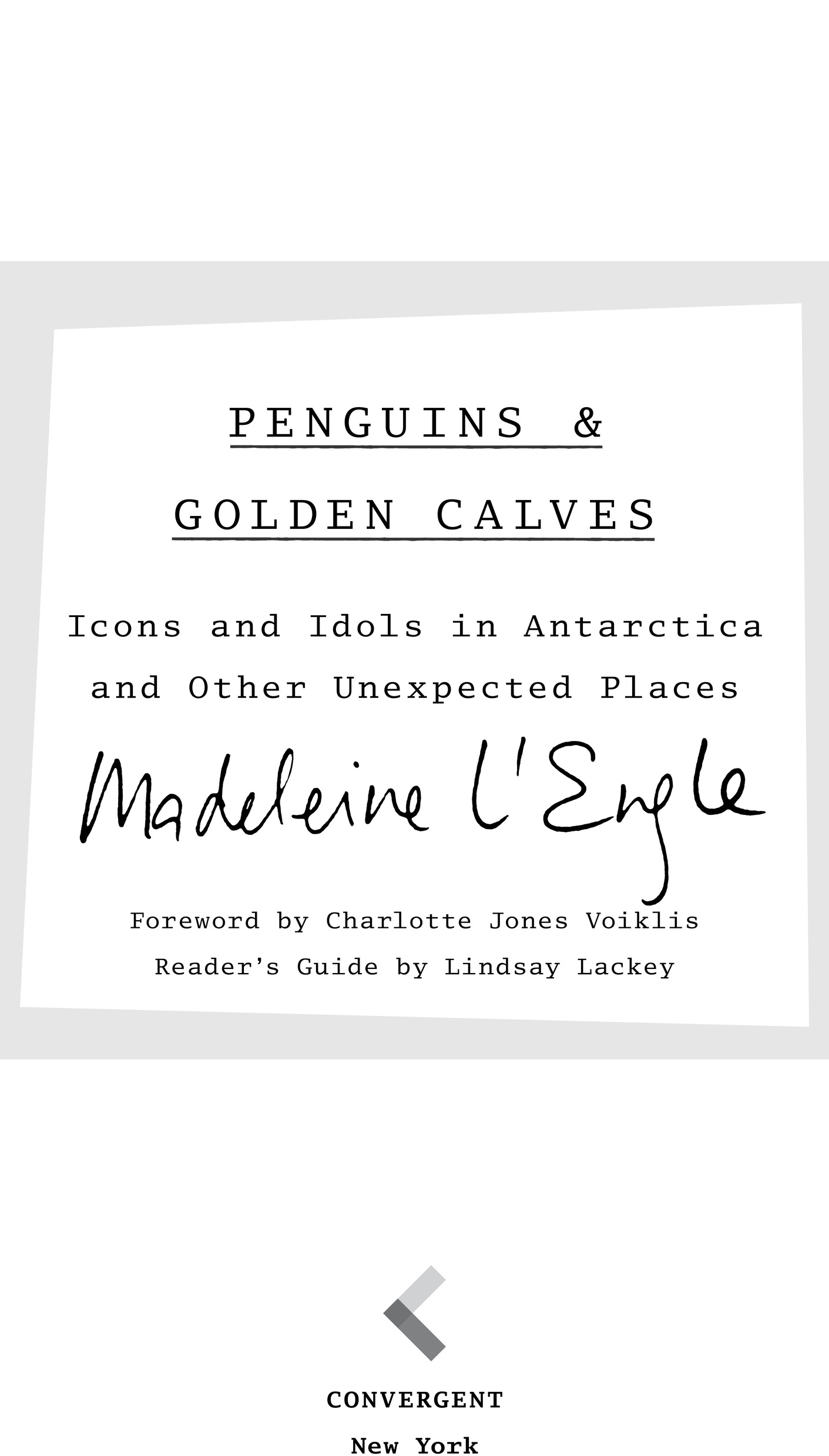Copyright 1996 by Crosswicks, Ltd.
All rights reserved.
Published in the United States by Convergent Books, an imprint of the Crown Publishing Group, a division of Penguin Random House LLC, New York.
CONVERGENT BOOKS is a registered trademark and its C colophon is a trademark of Penguin Random House LLC.
Originally published in hardcover and in slightly different form in the United States by Shaw Books, an imprint of WaterBrook, a division of Penguin Random House LLC, in 1996.
Library of Congress Cataloging-in-Publication Data is available upon request.
Foreword
I spent the first half of the book, pencil in hand, underlining and circling, adding smiley and frowny faces, exclamation points and question marks. What I was reading was perplexing me, and was inconsistent with the grandmother to whom I was very close and whose voice I am proud to amplify. But there is a great deal in this book that I find challenging.
There are grumpy parentheticals about identity politics; blunt and graphic words about bodies and desire and pleasure; an almost pandering cadence on topics that get some Christians in a froth: Halloween, Christmas, the New Age, vampires, and meditation. But I smile with relief and recognition when I come to this:
What I believe is so magnificent, so glorious, that it is beyond finite comprehension. To believe that the universe was created by a purposeful, benign Creator is one thing. To believe that this Creator took on human vesture, accepted death and mortality, was tempted, betrayed, broken, and all for love of us, defies reason. It is so wild that it terrifies some Christians who try to dogmatize their fear by lashing out at other Christians, because a tidy Christianity with all answers given is easier than one which reaches out to the wild wonder of Gods love, a love we dont even have to earn.
If I brace myself when she complains that I am told it is not politically correct to refer to people by colour, I am heartened when she turns the notion of political correctness on those who would deny the limitless compassion and love of Christ, its wildness and extravagance, its unreasonableness. Weve become too polite, she says. We dont laugh and cry with God.
So what is she trying to do here? The book does not begin where she says it begins, with her decision to travel to Antarctica after a car accident that nearly took her life. It begins in the middle, with two stories that explain why she wrote this unusual book and what she was trying to say, in a voice that is so like, and also, to me, so unlike hers.
One of those stories is the publication of a book by a particular brand of Christian whose purpose was to discredit her. The accusations were nothing she hadnt heard before: she was used to speaking gently, cajolingly, and persuadingly in front of congregations and gatherings of conservative Christians, and engaging in civil discourse and disagreement. She made many wonderful friends and found steadfast comfort and support from diverse communities, including Christians of all stripes, as well as people of other faiths.
But this one shook her.
I cant even call it twisting the facts because there were no facts. I was accused of levitating, of praying to a Buddhist statue, words taken out of context and distorted so that they were the opposite of what I had actually saidthey were outright lies, in fact.
She struggled with how to respond to the bookengage and defend, or ignore? These authors called themselves fundamentalist Christians, a word my grandmother attempted to reclaim, declaring: I think of myself as a fundamentalist, that is, someone who still cares about fundamental things, like truth and friends and imagination and love and story and honour and compassion. But, of course, those arent the kinds of things that most people identify with fundamentalism.
Her journey within fundamentalist and evangelical Christian circles was complex. I believe she felt called to ministry, to lovingly challenge those who would limit Gods love. She built and maintained deep friendships within those communities, and until the incident described above, felt sure of her welcome, even if her words made others uncomfortable. She never pulled her punches or moderated her language. She knew that words mattered, and didnt doubt her and her interlocutors ability to communicate civilly and meaningfully.
Once, my grandmother accepted an invitation to teach a summer course at a conservative Christian institution. As the final paperwork was being completed, just days before she was due there, she was asked to sign a statement of faith. These are common in conservative institutions and typically include affirmations of the fallen nature of humanity and the sin of homosexuality, and generally how angry and scary God is. She read the statement, was shocked, and said she could not sign it. She asked a friend of hers who was also teaching there if she had signed it. She had. Did she believe what she was asked to affirm? Well, she was used to the language and so it didnt shock her. My grandmother refused to sign it, and the faculty had to get special dispensation for her to come to campus.
This leads me to share the second story that spurred her to write this book:
I was with a group of young friends, mostly from my church, who were born into and brought up in evangelical households. I did not grow up with their language, but I am now familiar with it, and I know the particular people who came to my house that evening are strong with love and compassion and a willingness to listen to God and to change if that is what is asked. However, a college student who came by was not only turned off by the language of evangelical Christianity, but totally shocked at my friendship with people who spoke it.


